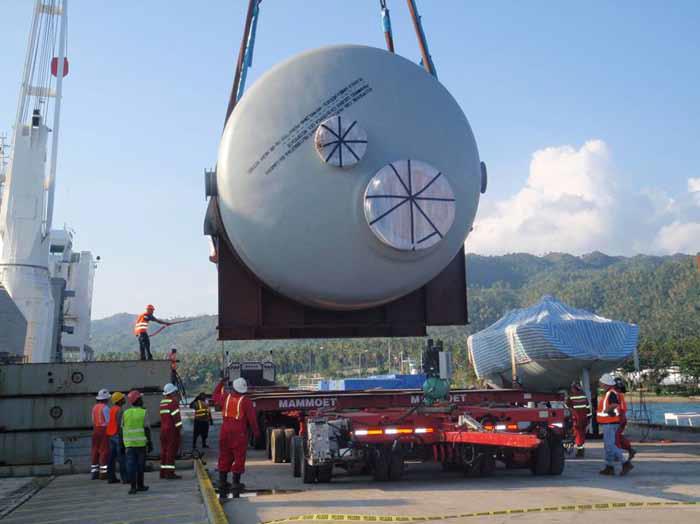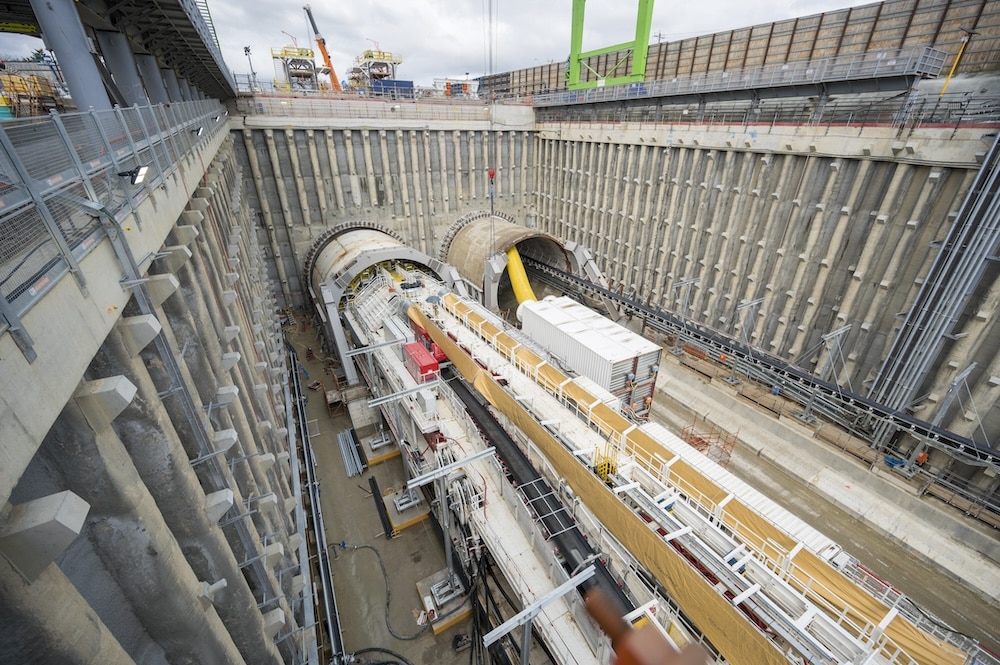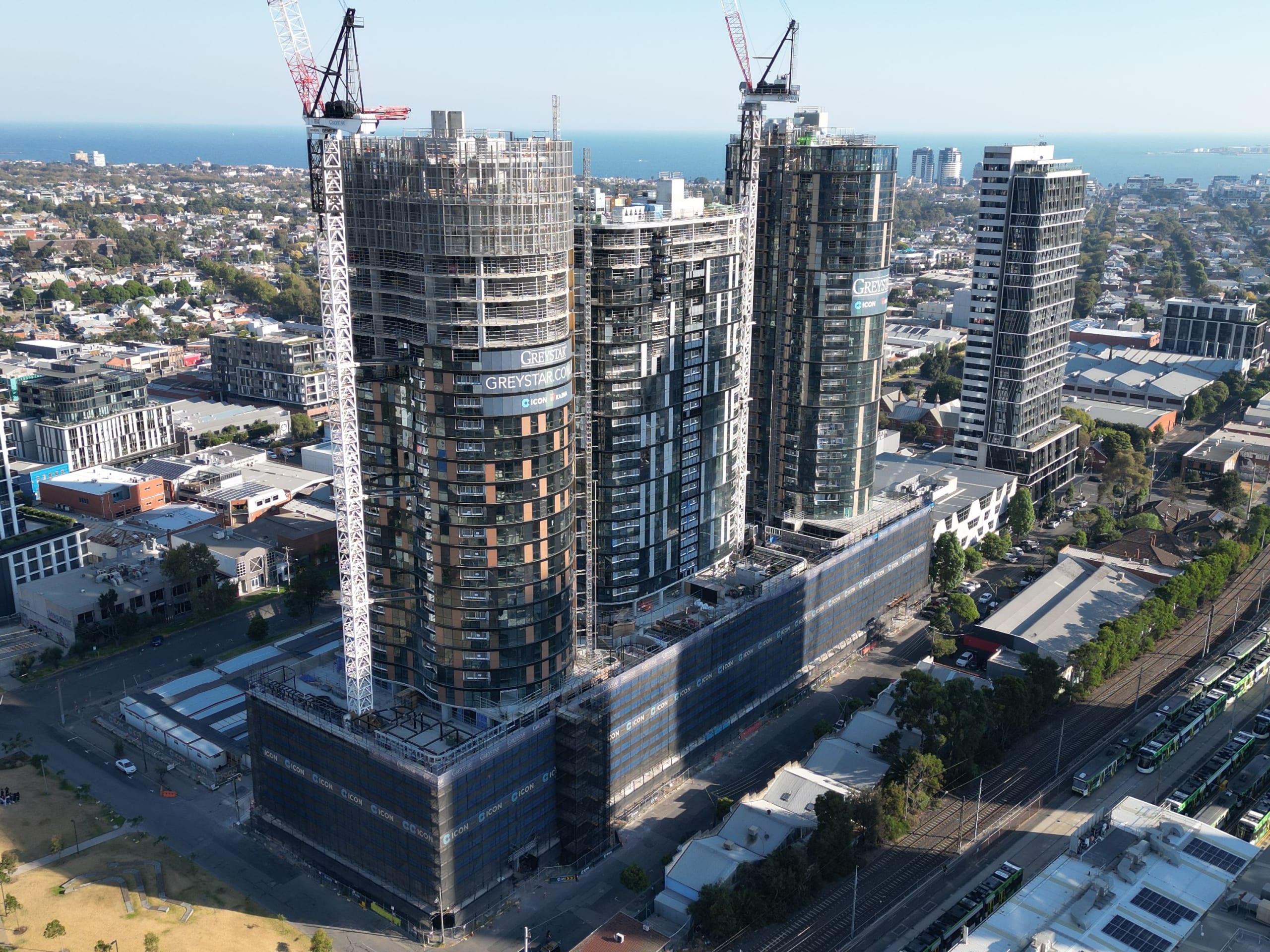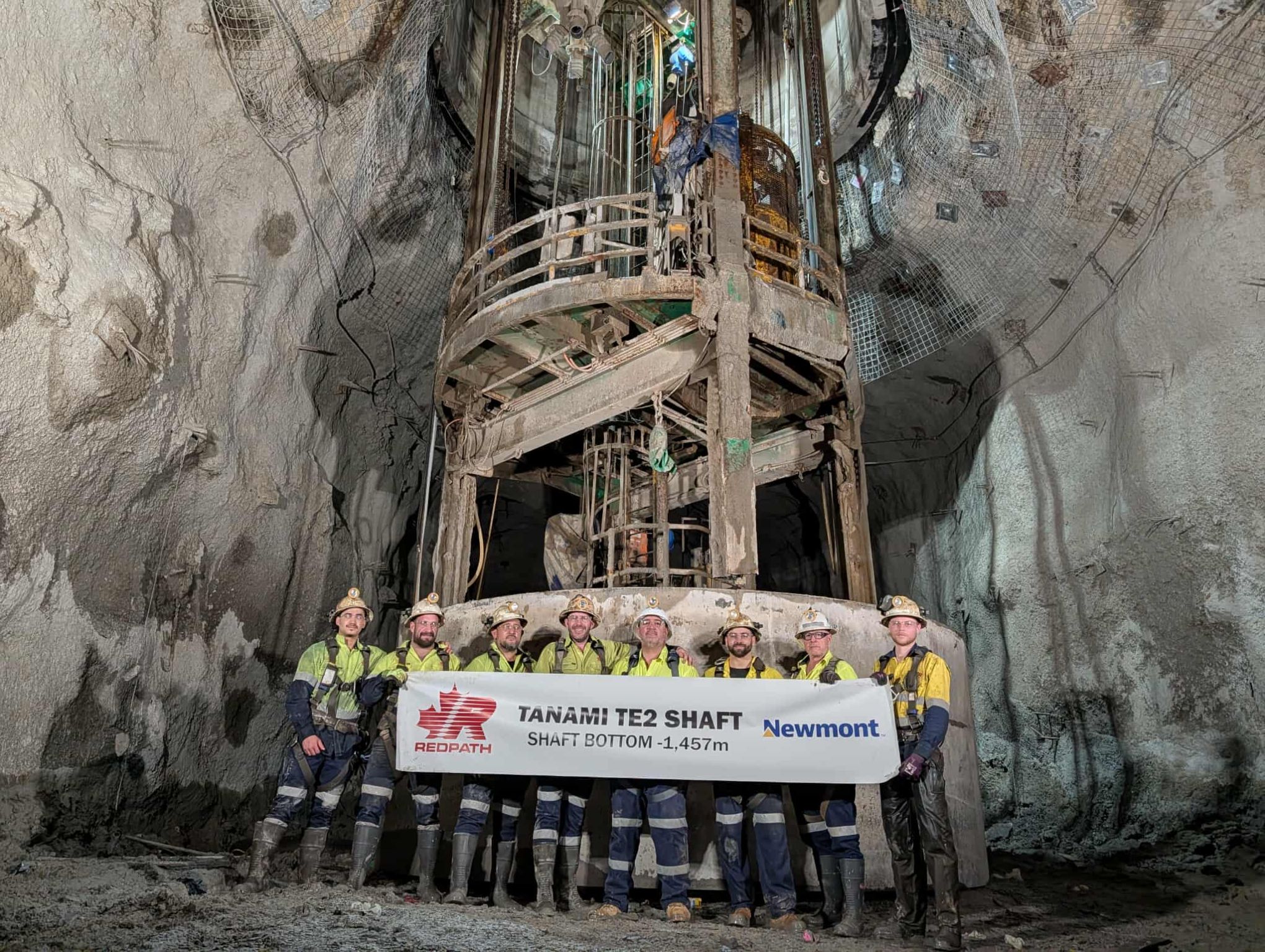
Manuel E. Bonilla, president of the Barrick Pueblo Viejo gold mining complex, talks to Jayne Alverca about the environmental, economic and social implications of the biggest single investment ever made in the history of the Dominican Republic.
Barrick is the world´s largest gold producer and the Pueblo Viejo mine, in the Dominican Republic, represents one of its most significant investments to date. With declared reserves of 23.7 million ounces of gold, Pueblo Viejo, around 60 miles northwest of the capital Santo Domingo, holds by far the richest deposits of gold ever identified in the country. The site, which is a sulfidic refractory gold deposit, is currently being developed to a 24,000 tonne-per-day design capacity.
Manuel Bonilla, president of Barrick Pueblo Viejo, explains that the Dominican Government first invited tenders for the project in 2001. One key aspect of the work required remediation of the site which had been badly damaged by earlier abandoned mining operations. The other centered on the development of new operations to extract and process the gold containing sulfurs of the mine.
The tender was initially won by Placer Dome Inc., which was subsequently acquired by Barrick. By 2009 the complex negotiations to develop Pueblo Viejo were complete and a 60/40 consortium with Goldcorp – the Pueblo Viejo Dominicana Corporation (PVDC) – in which Barrick holds the controlling interest, was busy constructing this multibillion dollar facility.
Production was due to begin early in 2012, but unprecedented and catastrophic amounts of rain fell in May 2011. This has necessitated costly and time-consuming remediation of the starter tailings dam which is still ongoing. However, by summer 2011, overall construction is now more than 70 percent complete. About 90 percent of the planned concrete has been poured, with the same amount of steel erected and more than 4.8 million tonnes of ore have been stockpiled.
Roughly 9,000 people are now working to bring the mine to production and Bonilla is keen to talk about the responsibilities that come with a project on this scale. “The Dominican Republic is a developing nation with many unmet needs and social and economic problems,” he says. “The scale and size alone of the project means that we have an enormous responsibility to ensure that these non-renewable resources can be translated into long-term sustainable economic gain for the country and its people. This responsibility is an integral part of the business and forms part of everything we do.”
Bonilla is a Dominican national and he believes his appointment was clearly intended to signal a commitment to the state of making this operation as locally run and operated as possible. By profession, he is an environmental engineer. “As such I care deeply about preserving the environment of my country for future generations to enjoy,” he declares. “Previous relations between the local communities and mining operations have not been positive because of the environmental legacy that was left behind. Now we have to live up to the promises we have made during recent years and prove it is possible to work in a very different way. We are totally committed to making this project a success in an ethical and sustainable manner and I have absolute confidence in the mining methodologies and techniques at our disposal. This is a state-of-the-art operation.”
The first challenge centered on leading one of the mining industry’s most ambitious environmental rehabilitation projects. Before the building phase could commence, the land had to be cleared and restored. A massive clean-up effort was required as a result of the improper closure of a former mine on the property in 1999.
Initial findings showed heavy metal concentrations, acidity and sediment in local waterways. The primary sources of soil and water contamination were the historic open mine pits, waste rock piles, the abandoned plant facilities and tailings storage areas. The Margajita River that passes through the hills near the site had been dubbed the “Coca-Cola river” by locals because of its dark color—the result of having absorbed so much acid rock drainage from the former mine.
The final team consisted of Barrick Gold employees, hazardous materials experts and new employees hired locally and specially trained for the operation. One of the first tasks was to take over a thousand samples to define soil in the area into different categories and determine future treatment and landfill options. Buildings on the property also contained different types of hazardous waste that had to be categorized and disposed of in a safe manner.
Approximately 130,000 cubic meters of soil were removed to rid the ground of contaminants. Bioremediation, a process that relies on microorganisms to return altered land to the natural environment, was successfully used to treat almost 100,000 cubic meters of hydrocarbon contaminated soil. Today, the site is unrecognizable and Bonilla is confident that the operation has been performed in accordance to the highest international environmental quality standards.
In addition to the clean-up of hazardous substances within the mining areas, it was proposed that the clean-up of the surrounding areas would cost the Dominican Government an additional $75 million and the company would contribute $37.5 million with the other half coming from state funds. In the end, Barrick offered to take on the full estimated cost of remediation of the surrounding areas to help improve local living conditions.
To complement the clean-up, Barrick will also sponsor a significant reforestation project in the area. “We want to do everything possible to offset our future activities and enormous areas of new forested land will become available for the region´s species. This move will also further improve the quality of water in the streams and we are working on a bio-diversity project in the area to protect the four species of tiny frogs that live here which are on the protected species list,” he adds.
Future contamination at the site will be avoided through high-tech innovation in the form of four giant autoclave machines, manufactured by Hatch Autoclave Technology Group. The autoclaves are essentially giant pressure-cookers which are used to process sulfurous refractory ore in an environmentally responsible manner. Hatch has been working on the project since 2006 and holds the engineering, procurement and construction management contract for this core part of the refractory process, as well as the supporting oxygen plant.
“We are only the fifth mine in the world to apply this type of solution and these are the largest autoclaves ever manufactured,” states Bonilla. “This process removes the No 1 contaminant produced by gold mining and it takes place in a fully controlled environment with no possibility that fluids or gases can be emitted. Left untreated, naturally-occurring sulfurous ores interact with rain water to create toxic sulfuric acidand are a major source of pollution. At Pueblo Viejo, we believe we have addressed this problem in the most comprehensive way possible.”
The process, which was developed in partnership with Barrick in Nevada, utilizes heat and high pressure to liberate gold particles trapped in sulfide to extract the sulfurous material. In the autoclaves, all sulfides are oxidized, producing sulfuric acid as a by-product. The iron, copper and zinc dissolve into the solution; then the acid is washed out in a counter-current decantation (CCD) circuit leaving free microscopic gold to allow for leaching in cyanide. The underflow slurry is pushed to a carbon-in-leach circuit. The autoclaves also tackle the carbon contained in the sedimentary materials, which is oxidized with the combination of oxygen and high temperatures.
The technology was specially modified to address the unique geology of Pueblo Viejo which contains a double refractory gold ore, associated with two difficult mineralogical issues. The first was the presence of sulfides, in the form of pyrite and minor base metals such as silver, copper and zinc, which prevented the traditional cyanidation process from directly recovering the gold. The second was a natural carbon component to the ore, which caused recovery issues under a conventional system. The incorporation of autoclaving within the processing of the ore has provided a new solution to these challenges.
During design of the autoclaves, Hatch also included a heat recovery circuit that, combined with the nature of the exothermic reactions that produce heat within the autoclaves, makes the heat autogenous by design. This heat recovery system means that energy needs will be minimal, reducing impact on the local electricity grid.
The Pueblo Viejo autoclaves are the largest, by weight, refractory-lined autoclaves built to date, with an on-hook weight of 780 tonnes when shipped lead lined. The massive structures are each 5.6 meters by 34.8 meters, and will nominally operate at 230 degrees Celsius. There are four in total and it is the first time such technology has been applied in the Dominican Republic. Three of the four autoclaves have already been brick-lined—each machine requires a lining that is four bricks deep needing a total of 98,000 bricks for each machine—and the remaining autoclave is nearing completion.
Transporting the autoclaves to the project site by road required a heroic effort to upgrade the existing infrastructure and preparations took over a year. As part of this work, Barrick also had to fortify the foundations of 27 bridges on the route as well as construct three entirely new bridges. Every road between the port and the mine was stabilized and paved and Bonilla believes that these spin-off improvements will benefit local communities for years to come.
In another spin-off benefit, Barrick also has a longer-term plan to build a dual-fuelled power plant at a capital cost of about $0.3 billion. The new plant is expected to provide lower cost, long term power to the project, but will also meet the future energy needs of communities in the area.
Bonilla has worked tirelessly to cultivate relationships with the municipalities in the area of the mine´s operations. “Municipalities in the area will receive five percent of total revenues when the mine finally goes into production next year,” he says. “This represents an enormous sum as traditionally they have had to provide services from a very small revenue stream. We see it as imperative to strengthen and support these municipal agencies so they have the technical capacity to use this money to best effect.”
In 2006, laws were enacted in the Dominican Republic to enable municipalities to hold referendums to decide on local priorities. “Although this legal right has existed for some time, the law was never really implemented, but we have funded the referendums so that local people can make their voice heard, declare their priorities and have a say in how these funds are spent,” Bonilla explains.
“Municipalities must know how to manage these funds in an open and transparent way. At present we are funding projects on transparency and how to invite and manage open tenders. In future, we feel that the municipal authorities will be in a much stronger position to manage these funds effectively and for the benefit of the whole community.”
As a result of the referendum process, a five-year development plan has been developed by the people of Cotuí, Maimón, and Fantino, the largest settlements in the area. Months of meetings involving thousands of people have culminated in agreement and approval for a long-term plan on how to trigger development and economic prosperity in a region which is still grappling with high rates of unemployment and poverty. Every resident was invited to vote yes or no to the custom-designed plan and it has achieved resounding support. The plan has legally binding powers and the vote, which was monitored by the same Central Electoral Board that coordinates the country’s presidential and congressional elections, was credible.
It is the first time that such a plan has been developed anywhere in the Dominican Republic. To make it successful, Barrick Pueblo Viejo worked alongside central and municipal governments, the Canadian Embassy, civil society and development organizations.
Faby Manzano, corporate social responsibility manager at Pueblo Viejo mining project, worked for over a year to make the plan a reality. “While Barrick was the facilitator of these meetings, the goal was to create a public-private partnership where our company is one partner in a much wider network of organizations all working towards the creation of a single plan for the community,” she says.
Cotuí was one of three municipalities near the Pueblo Viejo project site to be selected as a pilot community for this new approach. The other two, Maimón and Fantino, have had similar high rates of participation and a positive vote. “At first the communities were skeptical of the process because there has been a history here of development plans that were developed without public participation and later forgotten,” Manzano adds. “But as we moved forward in this process and were joined by other partners and held open meetings, the support increased.”
She hopes that the process involved in this private-public sector approach to community development will be adopted by other companies working in the Dominican Republic and used as a model for municipalities across the country to create their own development plans and assume responsibility for their own social development. Three new municipalities have now joined, and a total of 31 communities are now actively involved. A commonwealth has now been formed by these municipalities to try to promote a better future for the citizens of their region.
Efforts to improve the health status of the area have already been targeted through a community-based approach to partnership with local agencies. Cholera and dengue fever are endemic in the locality and in 2009 and 2010 Barrick funded a health prevention educational program that reached over 22,000 people. Two hundred Dominicans, mainly young people, were trained to work with the local municipalities of Cotuí, Fantino and Maimón. The teams visited households with the goal of educating residents on hygiene, family, and environmental health.
The importance of this program has been recognized as a significant factor in reducing the presence of dengue fever in the province, according to the local Health Department. Since the completion of the second phase of the program, which was sponsored by the Ministries of Labor and Public Health, Barrick and the local municipalities of Cotuí, Fantino and Maimón, there have been no reports of cholera or dengue fever cases in the region.
During this critical pre-production phase of the project, wherever possible, Barrick has sought to stimulate the local economy. Most of the site’s management team are also Dominican nationals, although the highly specialized nature of the work and equipment employed at the site inevitably requires input from foreign employees, contractors, and suppliers.
Bonilla explains that in total, 22 different nationalities are represented on the site. Fluor is a global specialist in large-scale engineering installations; an Indonesian company is installing the high tech instrumentation and a Peruvian contractor is working on the piping, but there are still many opportunities for local contractors.
“We have found much more scope for local subcontractors than we originally anticipated,” he continues. “Many of the steel and concrete structures required for the site infrastructure, offices, stores and medical and leisure facilities have been built by local contractors. The improvements that were necessary to the road infrastructure and to a number of bridges have also been carried out by local companies. Then there are the site’s catering facilities which serve up 27,000 meals a day on the complex. Almost everything here is procured locally and has been a tremendous boost to food producers in the area. We have looked carefully at alternative ways to meet our needs using small local suppliers whom we have found more than willing to bring up their quality standards to meet our specifications.”
An example he is keen to cite is the company´s procurement of reflective jackets that all site personnel must wear as a standard safety precaution to ensure their visibility at all times. “We started to buy them from our usual supplier and then realized that women´s groups in the area could manufacture them just as well with a little support. Just meeting our own requirements got the business off to a great start and now other mines are starting to buy from them.
“Another enterprise we have nurtured involved supporting groups of families weaving coconut mats which are a local response to the problem of soil erosion. Although the work was originally dependent on our operations, the mats are now being sold to third parties in Haiti to control erosion there.”
Bonilla recognizes that the mine has a finite life – although the production phase should last for at least 25 years. There is therefore a strong emphasis on planning for a sustainable and diverse future. Barrick has just provided seed capital for a business incubation bureau in Cotuí to assist the start-up of new businesses in the area that are non-mining related.
When the mine finally closes, significant reserves will have already been placed in trust with the Dominican government to deal with the eventuality. Meanwhile, Bonilla believes the mine´s lifespan is likely to be significantly longer than current projections suggest.
“We know there is additional gold at Pueblo Viejo, but the declaration process is very complex and it is extremely common in this industry for mines to have undeclared reserves. Also, the steady rise in the price of gold allows us to mine ever smaller concentrations of gold and if this trend continues it is likely to extend the life of the mine still further.
“One thing we are absolutely certain of is that we will be leaving this site in a much better condition than we found it. When the mining operation closes it will be done in a proper manner to international standards. At Pueblo Viejo we intend to bring to bear all the know-how and experience gleaned from mining operations across the globe and leave behind a vibrant and dynamic local community and economy. We want this mine and its operations to be a benchmark and a model for others in the industry,” he concludes.
DOWNLOAD
 Barrick_SEPT11_NA_BROCH-s.pdf
Barrick_SEPT11_NA_BROCH-s.pdf













